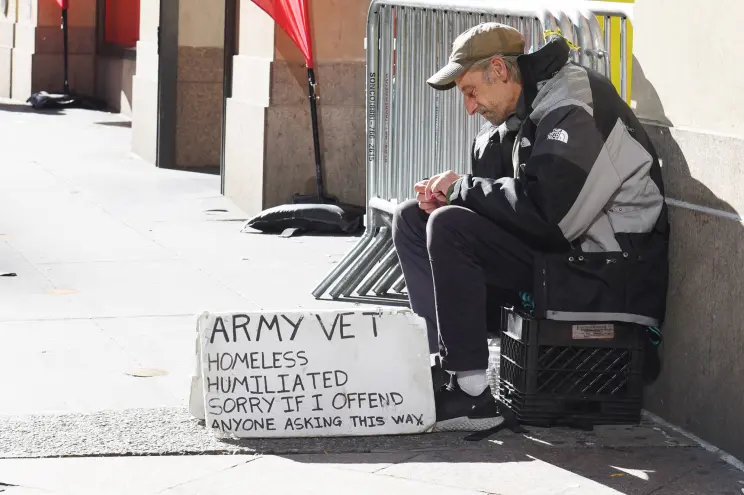The War That Never Ended

By Matt Stone
They tell you the war ends when you come home.
That the uniform goes in a box, the rifle turns into a memory, and the world picks up where you left it.
It doesn’t.
For a lot of us, the war just changes shape. It follows us into living rooms, traffic lights, and grocery store aisles. It crawls into our dreams and waits there. Every slammed door sounds like a mortar. Every silence feels like a countdown.
They say twenty-two veterans die by suicide every day. That number has been frozen in headlines for years, repeated until it sounds like background noise. The truth is worse. If you count the ones who never make it into the system, it’s closer to forty.
In 2012, I was one of the quiet ones trying to hang on. I’d done my part. I served. I followed orders. Then I came home to a country that didn’t have a plan for what to do with people like me.
The Bureaucracy of Desperation
When I first reached out for help, I called the VA crisis line. The phone rang forever. When someone finally answered, she sounded exhausted. She gave me another number. That number gave me a third. I wrote them on a sticky note and stared at it like it was a treasure map to nowhere.
I eventually got an “intake” appointment—six weeks out. I told them I didn’t think I’d make it that long. They told me to stay safe and wait for my counselor.
When I finally sat down in that office, I was already numb. The counselor read questions off a form.
Do you feel hopeless?
Do you have thoughts of hurting yourself?
Do you have access to a firearm?
I answered yes to all three. She wrote notes. I don’t know if anyone ever read them again.
She told me to come back in a month. I walked out into the parking lot feeling like I’d just confessed to a wall.
That was the day I realized how easy it would be to disappear without anyone noticing.
A System Not Built for This
The VA wasn’t made for invisible wounds. It’s a Cold War institution—paper files, forms, layers of clearance. It was built for broken bones and shrapnel, not for brains that won’t quiet down. When Iraq and Afghanistan filled hospitals with trauma you couldn’t photograph, the system cracked.
By 2012, veterans were dying before their first appointments. Investigations came later, but for the ones waiting, there were no hearings or headlines. Just silence.
I remember gripping the steering wheel in the clinic parking lot, hands shaking, eyes dry. I wasn’t angry. I wasn’t even sad. I was hollow. Like someone had taken all the noise of war and replaced it with static.
When I called again, they said they’d put me on a callback list. The call never came.
Fighting on the Inside
Suicide isn’t always about pain. Sometimes it’s about exhaustion. The constant fight to stay alive while the system keeps you on hold. The fight to get a bed, to get medication, to get someone who doesn’t look at the clock while you talk.
By then, I’d already buried friends who made it through firefights only to lose to paperwork. We stopped talking about who died overseas and started counting who we lost back home.
There’s a certain look you see in the mirror after enough of that. You stop recognizing yourself as someone worth saving.
The Civilian Disconnect
People say “thank you for your service.” I used to nod and say “you’re welcome.” Now I just say “thank you” back. It’s easier than explaining that gratitude without understanding feels like pity.
Behind every “thank you” is a country that outsourced its conscience. The wars were fought on credit while civilians went shopping. When we came home, we were supposed to blend in again.
But you can’t unlearn war. You can’t unsee what you’ve seen.
I remember sitting in a grocery store parking lot, watching people rush in and out, laughing and carrying bags. I wanted to be part of that rhythm again, but my mind was still on patrol, scanning for threats. PTSD isn’t just about flashbacks. It’s about a nervous system that refuses to believe the world is safe again.
The Illusion of Help
“Get help,” they say. As if help is a single place you can walk into. As if it’s waiting for you.
You have to prove you’re sick enough to qualify but not too sick to be treated. You have to show up on time, stay sober, and fill out forms that make you relive everything you’re trying to forget. You tell your story so many times that it stops feeling real.
If you’re lucky, you get ten minutes with a psychiatrist who prescribes something generic and moves on. Or a therapist who’s gone by your third session.
I tried both. I tried everything. Eventually I stopped trying.
The Cost of Waiting
I told myself I’d be fine. That I could push through. That toughness was enough. But this isn’t Ranger School. You can’t out-tough your own mind.
The truth is that America built a suicide machine and called it healthcare. Budgets tripled, awareness campaigns grew, slogans multiplied. But suicides stayed the same.
You can’t fix a soul with metrics. You can’t heal despair through bureaucracy.
What It Feels Like to Come Back
The hardest part isn’t the nightmares. It’s the quiet.
It’s waking up at 3 a.m. to a world that doesn’t need you anymore. It’s standing in line behind a man complaining about Wi-Fi speed while you’re remembering the sound of your friend’s last breath. It’s being told to “move on” when every cell in your body is still in combat.
In 2012, I was caught between survival and surrender. I didn’t want to die. I just wanted the noise to stop.
What finally kept me alive wasn’t the system. It was small things. A dog that needed me. A friend who checked in. A day where the silence didn’t feel quite so heavy.
The VA didn’t save me. People did.
Where We Go From Here
We lose veterans because the government treats suicide like a public relations issue instead of a moral one.
We don’t need more hashtags. We need access. We need trauma care that doesn’t depend on paperwork or waiting lists. We need communities that don’t just post flags once a year but show up for the people they celebrate.
A hotline won’t stop this. Awareness won’t stop this. Accountability might.
If a nation can send its young to war, it should damn well be able to bring them home whole.


Comments ()